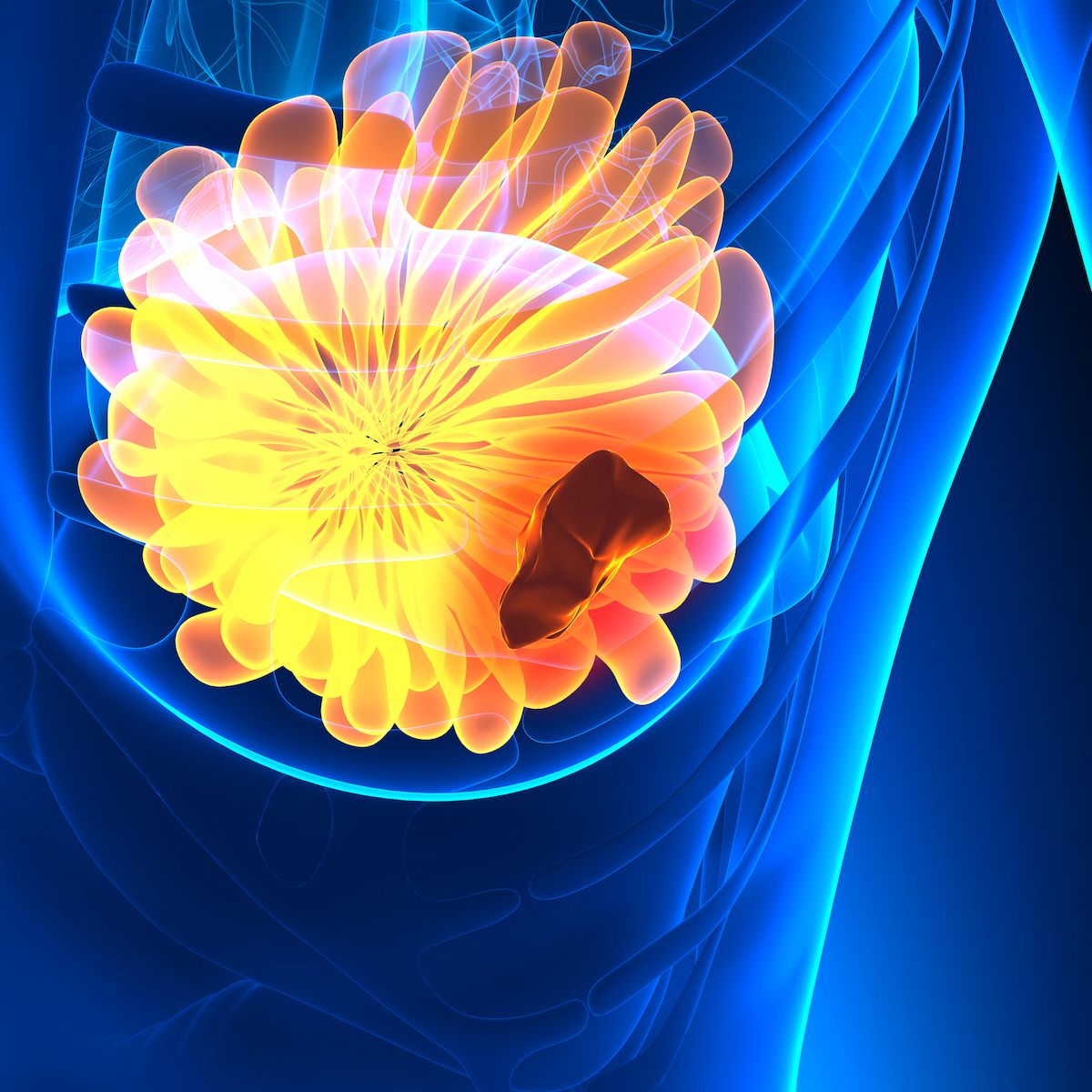FDA Accepts BLA for Dato-DXd in Metastatic HR+/HER2– Breast Cancer
Data from the phase 3 TROPION-Breast01 trial support the biologics license application for datopotamab deruxtecan in hormone receptor–positive, HER2-negative breast cancer.
The European Medicines Agency (EMA) previously validated a marketing authorization application for dato-DXd as a treatment for those with previously treated HR-positive, HER2-negative breast cancer based on data from the TROPION-Breast01 trial in March 2024.

The FDA has accepted a biologics license application (BLA) for datopotamab deruxtecan (dato-DXd) as a treatment for adult patients with previously treated unresectable or metastatic hormone receptor (HR)–positive, HER2-negative breast cancer, according to a press release from developers AstraZeneca and Daiichi Sankyo.1
The regulatory agency has set a Prescription Drug User Fee Action date within the first quarter of 2025 for its decision on approving dato-DXd in this indication.
Supporting data for the BLA came from the phase 3 TROPION-Breast01 trial (NCT05104866). Investigators presented updated findings from the trial at the 2023 San Antonio Breast Cancer Symposium (SABCS).
Per blinded independent central review (BICR), the median progression-free survival (PFS) was 6.9 months with dato-DXd vs 4.9 months with chemotherapy (HR, 0.63; 95% CI, 0.52-0.76; P <.0001).2 The median PFS in each respective arm based on investigator assessment was 6.9 months (95% CI, 5.9-7.1) and 4.5 months (95% CI, 4.2-5.5; HR, 0.64; 95% CI, 0.53-0.76). In each respective arm, the PFS rate per investigator assessment was 55.2% vs 36.9% at 6 months, 34.7% vs 20.9% at 9 months, and 21.7% vs 9.9% at 12 months.
Any-grade treatment-related adverse effects (TRAEs) affected 94% and 86% of patients in the dato-DXd and chemotherapy arms, respectively. Common any-grade treatment-related toxicities in each arm included neutropenia (11% vs 42%) and stomatitis (50% vs 13%).
“TROPION-Breast01 met its primary end point by demonstrating a statistically significant and clinically meaningful improvement in PFS by both BICR as well as investigator-assessed PFS. The results support dato-DXd as a potential new therapeutic option for patients with endocrine-resistant, metastatic HR-positive breast cancer,” Aditya Bardia, MD, MPH, a medical oncologist at Massachusetts General Hospital and an associate professor of medicine at Harvard Medical School in Boston, said in a presentation of these findings.2
Patients in the TROPION-Breast01 trial were assigned 1:1 to receive dato-DXd at 6 mg/kg intravenously on day 1 every 3 weeks (n = 365) or investigator’s choice of chemotherapy (n = 367). Options for chemotherapy included eribulin mesylate (Halaven), vinorelbine, or gemcitabine on days 1 and 8 every 3 weeks plus capecitabine on days 1 to 14 every 3 weeks.
The trial’s coprimary end points were PFS per RECIST v1.1 criteria and overall survival. Secondary end points included overall response rate, safety, patient-reported outcomes, and time to first subsequent therapy.
Patients with HR-positive, HER2-negative breast cancer previously treated with 1 or 2 prior lines of chemotherapy in the inoperable or metastatic setting were eligible for enrollment on the trial. Other eligibility criteria included having an ECOG performance status of 0 or 1.
“Despite marked progress in the treatment of HR-positive, HER2-negative breast cancer, most patients with advanced disease develop endocrine resistance and [have] the prospect of 1 or several lines of chemotherapy,” Susan Galbraith, executive vice president of Oncology Research & Development at AstraZeneca, said in the press release.1 “If approved, datopotamab deruxtecan has the potential to provide these patients an efficacious and better tolerated alternative to conventional chemotherapy.”
The FDA previously accepted a BLA for dato-DXd for adult patients with nonsquamous advanced non–small cell lung cancer (NSCLC) in February 2024.3 Supporting data for this application came from the phase 3 TROPION-Lung01 trial (NCT04656652).
The European Medicines Agency (EMA) previously validated a marketing authorization application for dato-DXd as a treatment for those with previously treated HR-positive, HER2-negative breast cancer based on data from the TROPION-Breast01 trial in March 2024.4 The agency also validated a marketing application for dato-DXd as a treatment for those with nonsquamous NSCLC based on findings from the TROPION-Lung01 trial.
References
- Datopotamab deruxtecan biologics license application accepted in the US for patients with previously treated metastatic HR-positive, HER2-negative breast cancer. News release. AstraZeneca and Daiichi Sankyo. April 2, 2024. Accessed April 2, 2024. https://tinyurl.com/mv3f3wa5
- Bardia A, Jhaveri K, Im SA, et al. Randomized phase 3 study of datopotamab deruxtecan vs chemotherapy for patients with previously-treated inoperable or metastatic hormone receptor-positive, HER2-negative breast cancer: results from TROPION-Breast01. Presented at: 2023 San Antonio Breast Cancer Symposium; December 5-9, 2023; San Antonio, TX. Abstract GS02-01
- Datopotamab deruxtecan biologics license application accepted in the US for patients with previously treated advanced nonsquamous non-small cell lung cancer. News release. AstraZeneca. February 19, 2024. Accessed April 2, 2024. http://tinyurl.com/2v5k3yhc
- Two datopotamab deruxtecan applications validated in the EU for patients with advanced nonsquamous non-small cell lung cancer or HR-positive, HER2-negative breast cancer. News release. AstraZeneca. March 4, 2024. Accessed April 2, 2024. https://tinyurl.com/3va3hp8n